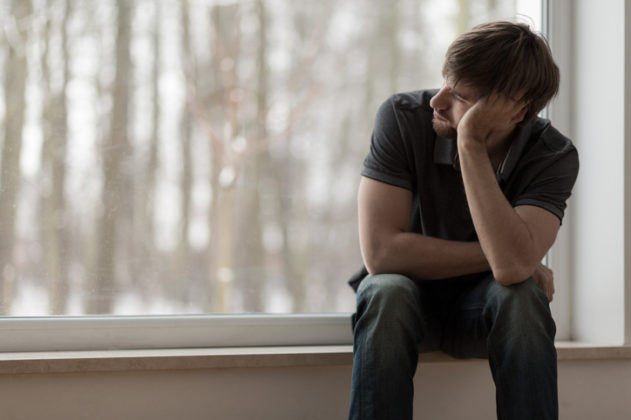Bisexuals also earn less than their straight peers, and research suggests that discrimination plays a part.
Many myths and stereotypes exist about bisexuality — and they’re generally negative. Despite being the largest population within the LGBT category, bisexuals tend to be seen as outsiders in both lesbian/gay and heterosexual communities. While you may think bisexual people would have an easier time finding partners, as they can choose from a larger pool, new research shows that’s not the case.
The Northwestern Institute for Sexual and Gender Minority Health and Wellbeing has found that monosexuals (people who desire only one gender, such as heterosexuals, lesbians and gay men) are less likely to date bisexual partners. For example, a heterosexual woman may be reluctant to date a bisexual man, and a lesbian may not pursue a relationship with a bisexual woman.
Among those who see bisexuals as potential partners, the majority of them are more willing to have sex with or date a bisexual partner than to be in a committed relationship with one.
Heterosexuals regard bisexuals (especially bisexual men) more negatively than they do lesbian and gay people. And biphobia can be internalized, as well. For instance, bisexual model and TV star Amber Rose admits that she would not want to date a bisexual man.
Bisexual men, especially in African-American communities, have been accused of bringing HIV and AIDS from gay communities to straight women. Bisexuals are perceived as more likely to give sexually transmitted diseases to their partners than heterosexuals, gay men or lesbian women are. Some TV portrayals of bisexuals contribute to these negative perceptions. The NBC show “This is Us” stands out for its balanced way of addressing male bisexuality.
The complexities, misunderstandings and negative stereotypes of bisexuals affect a potential partner’s willingness to date, have sex, and have romantic relationships with them. Two predominant prejudices cast bisexuals as a bad choice for partners. One is that bisexuals are confused, experimenting, or in denial about their true sexual orientation. This assumes that bisexuality is not a “true” sexual orientation, but an in-between state, a temporary or transitory stage.
This myth has long been debunked by studies showing that bisexuality is as much a life-long sexual orientation as homosexuality or heterosexuality, and that sexual fluidity (i.e. changing from one sexual orientation to another over a lifetime) can happen to anyone, not just bisexuals.
The other prejudice portrays bisexuals as promiscuous or unable to have monogamous relationships. But, once again, there is no data to support this argument.
Clearly, being portrayed as confused and promiscuous does not cast bisexual people as ideal long-term partners. Why does it matter? Because this type of misinformation and stereotyping have real ramifications for millions of bisexuals.
Micro-aggressions that bisexual women experience due to their sexual orientation negatively impact their mental health. Bisexuals reportedly experience more mood and anxiety disorders, as well as depression. Bisexual women experience more eating disorders and more substance use than lesbian and heterosexual women. Bisexuals also earn less than their straight peers, and research suggests discrimination plays a part.
Negative attitudes toward bisexuals also are likely to affect the intimacy and stability of a couple, perhaps reinforcing those stereotypes about commitment in a self-fulfilling prophecy. Since being in a relationship is better for your health, prejudices and stereotypes that portray bisexuals as unfit romantic partners have negative effects on their minds and bodies.
To be sure, in a 2013 Pew Research Center study, bisexuals reported less overt discrimination, such as slurs and jokes and being treated unfairly on the workplace, than gay men or lesbians. But a 2015 comprehensive study showed that bisexuals face “considerable discrimination in the workplace,” suggesting that these forms of discrimination are subtle and hard to pinpoint at the individual level.
Since stigma and discrimination contribute to mental health problems experienced by some bisexual people, it’s critical that, as a society, everyone has accurate information about bisexuality. Debunking myths about bisexuality can increase social acceptance, decrease discrimination and improve the health and wellbeing of bisexual people.
Francesca Gaiba, Ph.D., is Research Associate Professor of Medical Social Sciences, Associate Director of the Institute for Sexual and Gender Minority Health and Wellbeing at Northwestern University, and a Public Voices Fellow through The OpEd Project.
Other Links:

